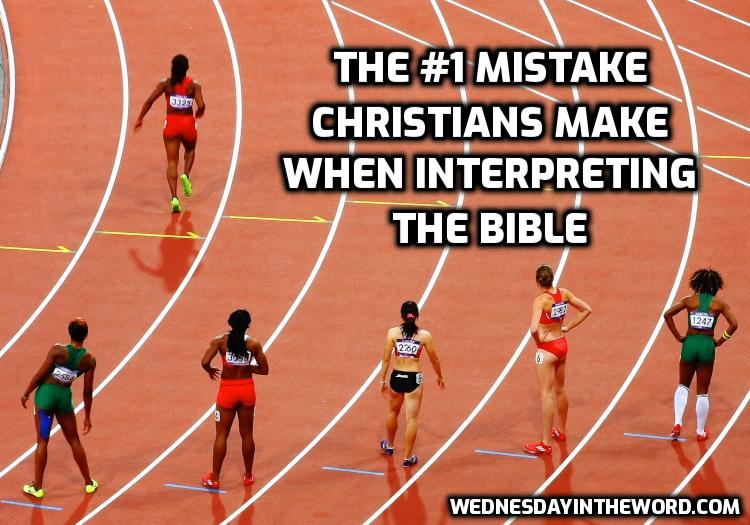One of the most common mistakes in interpreting the Bible is riffing on a particular word or phrase at the expense of context. No one thinks they fall into this trap. Yet, if you listen for it, you’ll hear it everywhere.
One of my bible teachers taught me how to spot this method through this analogy:
Think twice
Imagine that 100s of years after your death someone discovers your writings on this archaic device called a “blog.”
These future folks are amazed at your wisdom and common sense insights — now missing from their post-post-post-modern culture. They read your blog as a companion to scripture, using your explanations to help them understand ancient culture, and holding you up as their exemplar. In effect, you become the posthumous founder of a new religion.
In one of your writings, you addressed a friend on the brink of disaster. Fearing she was making a serious mistake with disastrous consequences, you wrote to her, “I urge you to think twice before you take any action.”
Upon reading that “verse” (“I urge you to think twice”), your followers in the distant future recognize it as the key to peace, fulfillment and happiness.
“Our founder has urged us to think twice,” they say. Thus, they develop a daily discipline where they never think twice before every decision. They write books about various techniques for achieving success at thinking twice. They create mnemonics that all begin with the letter T to help them put “think twice” into action. And, they develop a 12-step plan to help failed “twicers” get back on the wagon.
Then some innovative group realizes if thinking twice is good, then three times must be even better. And the “thricers” are born!
If you were transported to the future, and the “twicers” and “thricers” flocked to your feet to hear your wisdom, what would you tell them? Is that what you meant? Did you mean to inspire a set of religious disciplines when you wrote: “I urge you to think twice”?
No, of course not.
Context is King
You wrote those words in a particular context, speaking to a friend who was about to make a terrible decision. You meant, “I want you to reconsider the foolish way you have been thinking and come to a different conclusion.” You used a common expression of our day (though it may no longer be in use 100s of years from now) in a specific context to a specific person warning of a specific course of action.
Riffing off a phrase is bad methodology. Even though I exaggerated to make the point, examples of this methodology are legion.
When Paul writes “set your minds on the things that are above (Colossians 3:2)” or “put off your old self (Ephesians 4),” we build a religious discipline around it, like “think twice.”
Context matters. Application and exhortation sections of the Bible have a context just as much as didactic sections. We must let the biblical authors set their own agenda.
It’s tempting to lift exhortation sections out of context because they appear to standalone. They are usually shorter and dash from one idea to the next. We treat them like isolated musical notes, missing the beautiful melody they play when connected by context and a line of thought.
Page Views: 709
